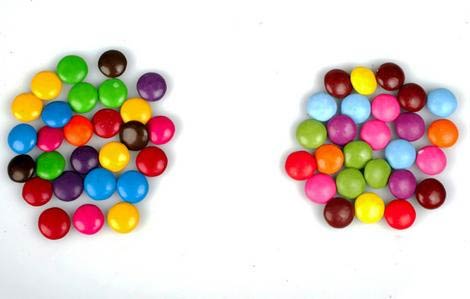Activists Win Small Battle Against Food Additives
By Kelly Burke | Dec 27, 2008

Activist parents and anti-food additive lobbyists are claiming a small victory in the battle against potentially harmful artificial food colourings.
After declaring war on six food colourings banned or being voluntarily phased out in various European countries and the US over the past two years, the Kids First Campaign and the NSW Greens have pressured Nestle Australia to change the ingredients in one of the manufacturer’s most enduring staples.
From next month, the familiar crisp, multicoloured, shiny shells of Smarties will fade, as five of the six food colourings possibly linked to attention deficit hyperactivity disorder in an overseas study are replaced with safer alternatives.
Nestle has spent years insisting the food colourings are harmless, and that there were no plans to change the recipe.
Yesterday, however, Nestle told the Herald that although it still stood by the safety of its confectionery, consumer demand had persuaded the company to switch to less controversial food colourings, in line with moves by the British arm of the company.
“Consumers are telling us they prefer products that are as natural as possible,” Nestle Australia’s general manager of confectionery and snacks, Andrew McIver, said. The artificial colours tartrazine (102), quinoline (104), sunset (110) carmoisine (122), ponceau (124) and allura red (129) will be replaced by naturally derived ingredients such as turmeric, carotene and spirulina.
Julie Eady, the founder of Additive Alert and co-convener of the campaign, said Nestle should be congratulated for listening to consumers and taking a leadership role among manufacturers.
“Nestle has decided to do what’s right, not just the bare legal minimum,” she said. Ms Eady said Nestle’s decision highlighted how out of step the national food regulator, Food Standards Australia New Zealand was with consumer sentiment and attitudes.
Earlier this month the authority announced there would be no change to existing regulations after finding that Australian children consumed artificial food colourings at a significantly lower level than their British peers, the additives were clearly marked on packaging labels and posed no public health and safety risk if consumed as part of a balanced diet.
“FSANZ does recognise that adverse reactions to foods and food additives occur in a small proportion of the population,” the authority’s chief scientist, Dr Paul Brent, concluded. “[But] it should not be assumed that simply taking these additives out of a child’s diet will eliminate these symptoms.”
The NSW Greens MP John Kaye said FSANZ had contradicted the findings of its own survey by admitting that some children did react to some food colourings.
“[FSANZ] is refusing to admit that these dyes have no nutritional value and that removing them from the diet would save a large number of children from attention disorders,” Dr Kaye said. “FSANZ is playing statistical games with the health of this nation’s children.”















